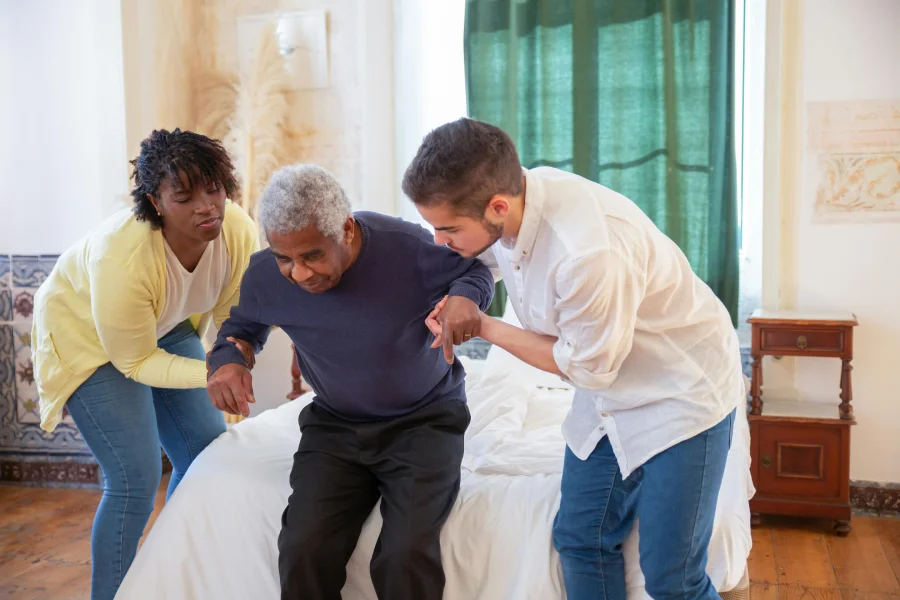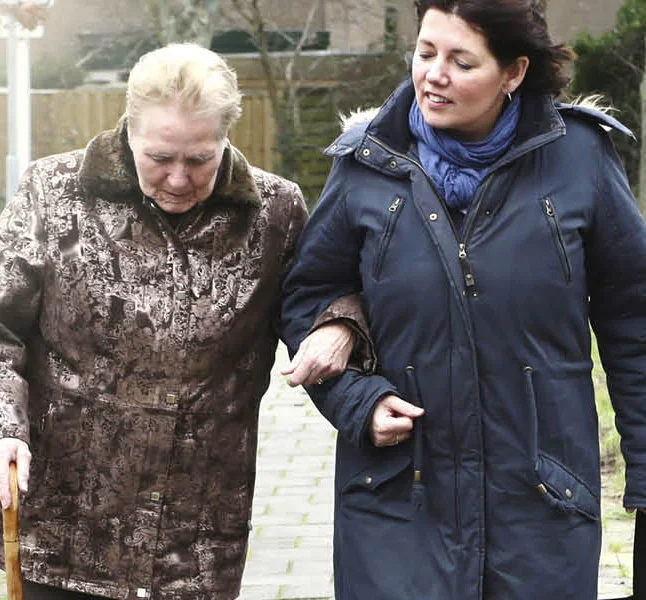Has your loved one recently finished a hospital stay? Whether they were dealing with an illness, injury, or recovering from a surgery, they may find adjusting back into home life a little overwhelming.

But, no matter their experience, there are steps you can take to support their transition from the hospital.
In this article, we’ll detail why and how your loved one may need help, important steps you can take to support them, and where you can get additional support if you need it.
No matter your circumstances, it’s important to remember that you and your loved one are not alone.
For personalised advice or guidance on after-hospital care, reach out to our team at Aspire UK today.

Why Your Loved One May Need Support
Hospital stays can take a toll, both physically and emotionally, no matter the reason for the admission. That’s why having the right support in place can make such a difference during the transition back home.
It’s also common for loved ones to feel overwhelmed by managing their care on their own, so having a family member or friend nearby can help ease the load and offer much-needed reassurance and support.
Likewise, if your loved one lives alone, they may find certain daily tasks more challenging than before. After leaving the hospital, it’s often important for them to continue resting and recovering at their own pace to help prevent setbacks or complications.
Spending time on bed rest can also affect a person’s strength and mobility. Without the right support to help them rebuild these skills or adapt to any changes, they may be more vulnerable to falls and other challenges during their recovery.
Discover how our Reablement team can help.
Steps You Can Take to Support Your Loved One
There are a number of gentle, practical steps you can take to help your loved one manage their health and settle back into home life safely. Here, we’ll walk you through some helpful tips and things to keep in mind as you support them through this transition.
1. Providing ongoing care
Depending on their condition, your loved one may need continued care. This may involve picking up new prescriptions and going to appointments, either for further care or check-ups.
You can help them with this either by simply reminding them of when their appointments are or what they need to pick up. If they need extra help, you may need to collect their medication or help take them to appointments.
Regardless of your approach, you should try to work with your loved one as a team so they feel supported without losing their independence.
2. Preparing their home
Depending on the circumstances, your loved one’s home before they left for the hospital may no longer be safe for them. If possible, take time to check for and remove tripping hazards such as stray cables or obstructive furniture.
You can also implement other safety measures, such as rails and slip mats, to help prevent falls. Likewise, stripping and remaking their bed can ensure they feel comfortable and clean as soon as they arrive.
While this is important, it’s also vital that their home is functioning correctly. Does their heating and plumbing work? Or will they potentially need to stay elsewhere while they recover?
3. Nutrition and hydration
It may be difficult for your loved one to cook, meaning they may have difficulty eating enough to stay healthy. Preparing meals in advance can ensure they have a store of quick, convenient, and nutritious food to fall back on.
Likewise, staying hydrated is equally important. Consider providing water bottles that they can easily access, or reminding them to have a glass of water regularly throughout the day.
4. Just being there helps
Sometimes, just having a friendly, supportive face is enough for our loved ones to feel better and get back on their feet. Whether you’re helping with specific tasks or simply being close by, providing emotional support and care should never be discounted.
Reablement Home Care
Providing care is not a simple process. While rewarding and important, it can be incredibly time-consuming and overwhelming, especially if you are doing it alone. However, there are care options available that can help alleviate some of that pressure.
Reablement care is a form of home care focused on helping your loved one practice and regain skills they may have lost. Rather than providing a care service, the care worker sits with your loved one and helps them relearn how to complete daily and personal tasks so that they can live confidently and independently.
Likewise, their care worker can teach them new ways and methods of completing tasks so that they can adapt to their new abilities. This program usually runs between two and six weeks, so that your loved one receives care without having to worry about potentially ongoing support.
Supporting Your Loved One
Does your loved one need extra support that you’re struggling to provide? At Aspire UK, we understand just how overwhelming care can be, especially after a hospital stay.
Our experienced team offers a variety of home care services that you and your loved one can rely on. With our professional, compassionate support, you can relax knowing that your loved one is receiving the care they need.
Reach out to us to discuss your concerns and build a care plan that works for you and your loved one.






